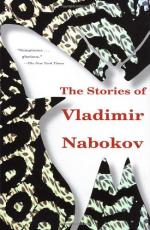|
This section contains 4,435 words (approx. 15 pages at 300 words per page) |

|
SOURCE: “Nabokov and Memory,” in Partisan Review, Vol. LVIII, No. 4, Fall, 1991, pp. 620-29.
In the following essay, Alter examines the intersection of past and present, of actual memory and reconstructed scenes in Nabokov's autobiography, Speak, Memory.
In Nabokov's notoriously restricted private canon of great twentieth-century novelists—he admitted only Proust, Joyce, Kafka, and Biely—it is Proust who often seems most intimately allied with his own aims and sensibility. A pursuit of time past is undertaken directly or obliquely in many of his novels, and most centrally in what are probably his two finest books—Lolita and Speak, Memory. The autobiography is as Proustian as anything Nabokov wrote, and it even includes a little homage to Proust: Nabokov's last vision of Colette, his Riviera childhood sweetheart, rolling a hoop glinting in the autumnal sun through dead leaves in a Parisian park, is a citation, a transposition of pattern...
|
This section contains 4,435 words (approx. 15 pages at 300 words per page) |

|


